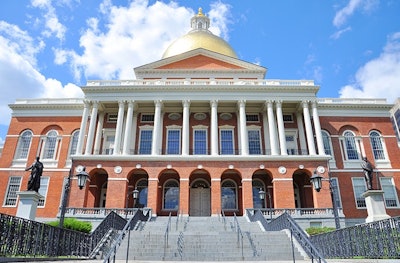
“We’re enforcing the law” and “transparency takes time” are two clear takeaways from a recent conversation with Massachusetts Cannabis Control Commissioner Jennifer Flanagan.
Now, these comments are taking on new light after Superior Court Judge Douglas Wilkins ruled in part last week that the CCC is responsible for both enforcement and creation of policy, not strictly enforcement.
During a panel conversation with Flanagan at the annual Cannabis World Congress & Business Expo in Boston, attendees pressed the commissioner on everything from Gov. Charlie Baker’s ban on vaping products in the commonwealth to whether the CCC is overwhelmed with its current mandate.
The most contentious moments came as Flanagan discussed the legality of the ban and her individual support of it.
When asked, “Why ban an entire category … when there are known detriments to any other alternative?” Flanagan clarified her part in Massachusetts’ budding bureaucracy.
“I hope people are listening. I didn’t ban anything,” Flanagan said. “I have to comply with a state ban that came from our chief physician, the Commissioner at [the Department of Public Health]. … My job is to enforce that—not to take aim or have a thought about that.”
“I don’t want to die!” shouted one attendee, later explaining that vaping THC-infused cannabis oil not only saved his life, but also precipitated his entry to the cannabis industry as a manufacturer of THC and CBD oil. The entrepreneur, who asked to remain anonymous, is a pancreatic cancer survivor who found success in using both CBD and THC.
“At the time I heard CBD could inhibit cancer cell growth, and the THC is the only thing that could get me to eat,” he said.
Advocates argue cartridge-based vaping methods for THC are one of the most effective ways to moderate dosage and efficacy of cannabis. Flanagan believes we simply do not have enough information, while avoiding premature judgments regarding vaping. It’s that relative lack of information that is driving her to learn more about the ramifications of a ban on cannabis vape products.
Flanagan also urged patience in all aspects of legal cannabis, reminding moderator and host of the Cannabis Economy podcast, Seth Adler, “We’re only 11 months into this industry,” and reiterating the need for transparency and safety. (Massachusetts began adult-use sales at the start of this year.)
“One of the reasons growth takes so much time is everything has to be public,” Flanagan stressed, referring to the requirement of holding public meetings and maintaining oversight across multiple agencies. “The last thing we want to do is drive anyone to the black market, but we do know of at least one case from another state in which someone did purchase cartridges through a legal dispensary.”
But the sense of urgency remains, and that fact became more clear this week as the CCC announced it is lifting the ban on vaping products for medical cannabis patients beginning Nov. 12, in accordance with the state judge's recent ruling. The ban on nicotine and adult-use vaping products remains in play and subject to public hearings later this year.


























